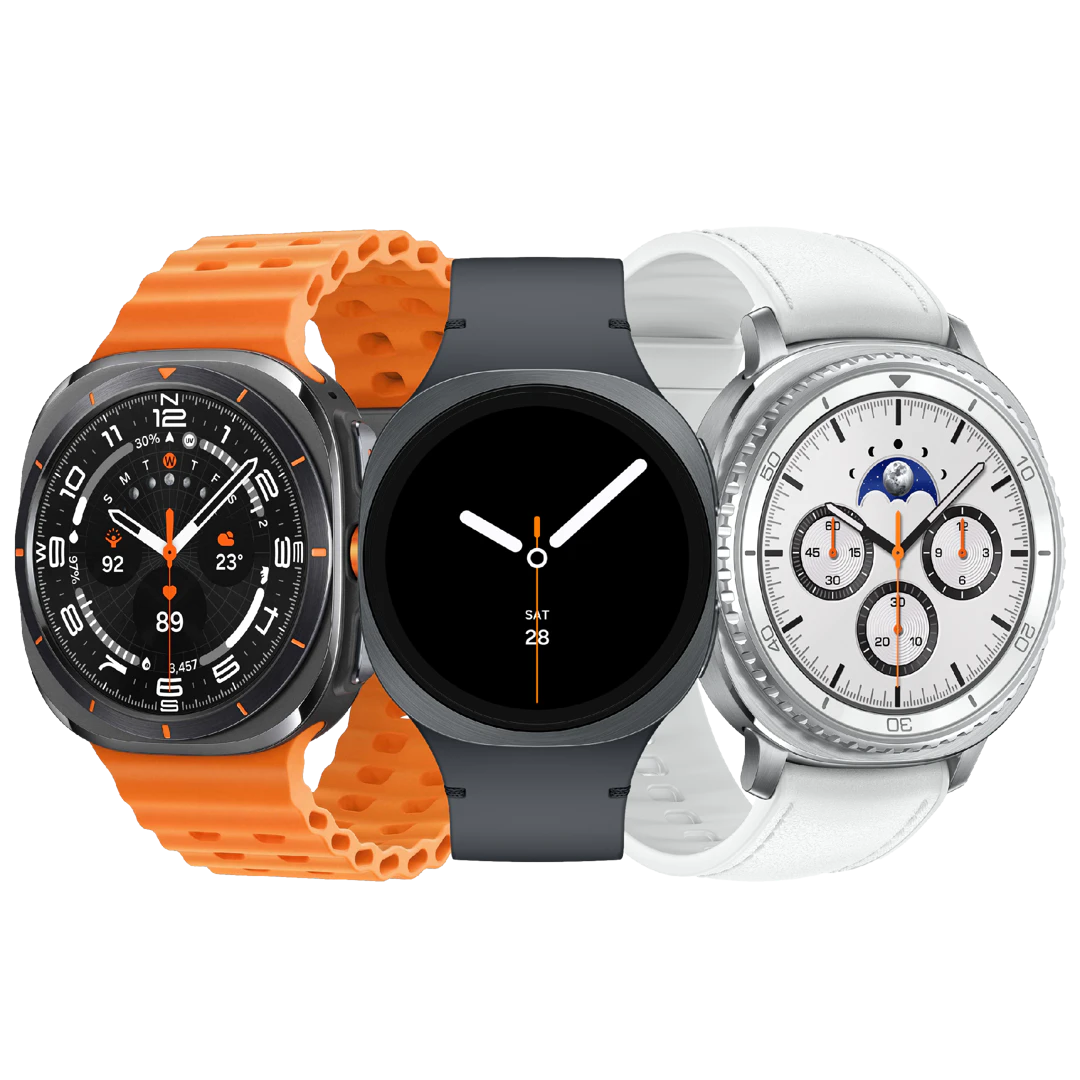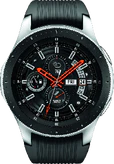
Samsung smartwatches
Samsung Galaxy smartwatch needed? View and compare all Galaxy Watch models here, both with and without 4G capability. Not only do we have all Samsung watches conveniently listed, but we also have all providers. This means you'll never pay too much and you'll be right up-to-date.

All Samsung smartwatches
Samsung has been making smart watches since 2013. These have been marketed under the Galaxy name since 2019. Before that, Samsung also used the Gear name, especially for fitness trackers. The first smart watch from South Korea's Samsung combined both names; the Galaxy Gear.
Samsung Galaxy Watch
The first Galaxy Watch new style was announced in August 2018. Samsung used a circular design and gave the watch a successor every year. The first generation Watch came out in two sizes; 42 and 46mm. Successors also came out in two sizes although the size did vary over the years.
Within the Galaxy Watch series, Samsung also released an Active variant a few times. This looked a bit more refined and was intended to appeal particularly to a female audience. Later Galaxy Watch models were given a sleeker look which eliminated the need for an Active model.
Connection with smartphone
To let your Galaxy Watch connect to your Android smartphone, you need to download the Galaxy Wearable app from the Google Play Store. You don't strictly need a Samsung smartphone for this. Next, connect to the watch using Bluetooth.
Earlier Galaxy Watch models could also be connected to an iPhone but that no longer works since the use of Wear OS as the operating system.
Tizen and Wear OS
Samsung has been using the Wear OS operating system for its smart watches since the Samsung Galaxy Watch4 from 2021. Like Android, this platform is released by Google. Before that, Samsung used the Tizen operating system.
Tizen was primarily maintained by Samsung and resulted from MeeGo and Bada. Separate from the operating system, Samsung uses its own developed shell called One UI Watch. Like One UI for Android smartphone, this shell determines how icons look, what color schemes are used and how sounds sound.




